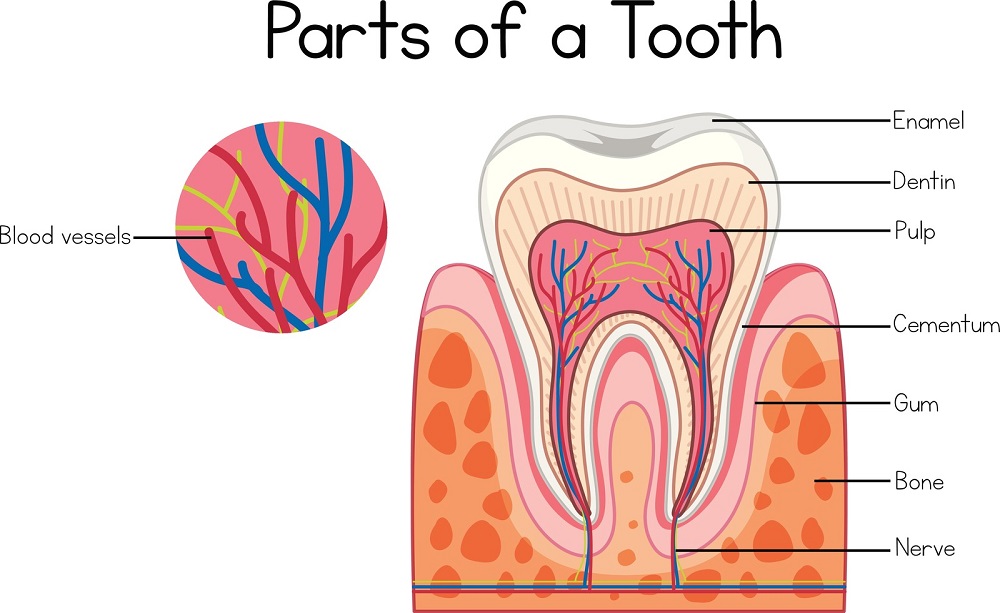What is a Root Canal?
The infected pulp from the tooth’s root is removed during a root canal treatment near you. The pulp is the soft tissue that covers the tooth’s root and comprises blood vessels, nerves, and connective tissue. An infected pulp can cause discomfort, swelling, and possibly tooth loss.
Why Do You Need a Root Canal?
You need a root canal if you have a toothache that does not go away after using an over-the-counter pain reliever. Other indications that a root canal may be necessary include the following:
- Intolerance to hot and cold meals or beverages.
- Discomfort during eating or biting.
- A tooth surrounded by swollen or sensitive gum.
- An unpleasant aftertaste.
- A spot or growth on your gums.
How to Know If You Need a Root Canal?
Here are some signs that you could require a root canal:
- Toothache: The most typical sign that a root canal is necessary is the feeling of pain around a tooth. This discomfort might be chronic or sporadic and worsen when you chew or bite.
- Sensitivity to hot or cold: You can also be sensitive to hot or cold meals and beverages. This sensitivity might be slight or severe, ongoing or sporadic.
- Swollen gums: The gums may be painful and swollen around the impacted tooth.
- Foul breath: The tooth that is compromised may also cause you to have bad breath.
- Discolouration: The harmed tooth may start to show signs of aging, often turning a dark brown or black.
It’s crucial to consult our dentist near you immediately if you encounter any of these signs. An infected tooth can be safely and effectively treated with a root canal, which also helps to stop the infection from spreading to nearby teeth and body tissues.
What Happens if You Wait Too Long To Get a Root Canal?
The infection in your tooth might spread to the surrounding tissues and bones if you put off getting a root canal for too long. Serious issues that can result from this include:
- Pain: The infection may produce excruciating discomfort, making talking, eating, or sleeping difficult.
- Abscess: An abscess is a pus-filled pocket that can develop around an infected tooth. Bumps can cause excruciating pain, a fever, and other infection-related symptoms.
- Loss of bone: The infection may result in bone loss near the tooth. It may result in dental sensitivity and, rarely, tooth loss.
- Sepsis: Rarely, an infection will travel to the bloodstream, resulting in sepsis. Sepsis is a potentially fatal illness that has to be treated right away.
How Can You Avoid The Need For a Root Canal?
You may take several steps to lessen the likelihood of needing a root canal. These consist of the following:
- You should floss once a day and brush your teeth twice a day. As a result, your teeth’ plaque and germs, which can cause cavities, will be cleaned off.
- Visit our dentist for routine examinations and cleanings. Early cavity detection and treatment can prevent the need for a root canal.
- Adopt a balanced diet. Your teeth and gums may stay healthy with a diet rich in fruits, vegetables, and whole grains.
- Avoid sugary beverages. Sugary beverages may cause tooth decay.
- Whenever you play a sport, use a mouthguard. Mouthguards can assist in preventing dental injuries that could otherwise result in cavities and the need for root canal therapy.
- Quit smoking. Your teeth and gums may suffer harm from smoking, leaving them more prone to cavities and other dental issues.
- Practice stress management. Stress can cause people to grind their teeth, which can cause cavities and necessitate the need for a root canal.
- Use mouthwash and toothpaste with fluoride. Your teeth can become stronger and more cavity-resistant with the help of fluoride.
Ask your doctor to examine you frequently. Your chance of having dental issues may rise if you have certain medical conditions, such as diabetes. You can help detect and manage any underlying medical illnesses that may be causing your dental issues by visiting the dentist for routine exams.
Schedule an Appointment at NorthPointe Dental Clinic
Do you or someone you know suspect the need for a root canal? Call or walk into our dental practice to schedule a consultation with our dentist and get assessed.
